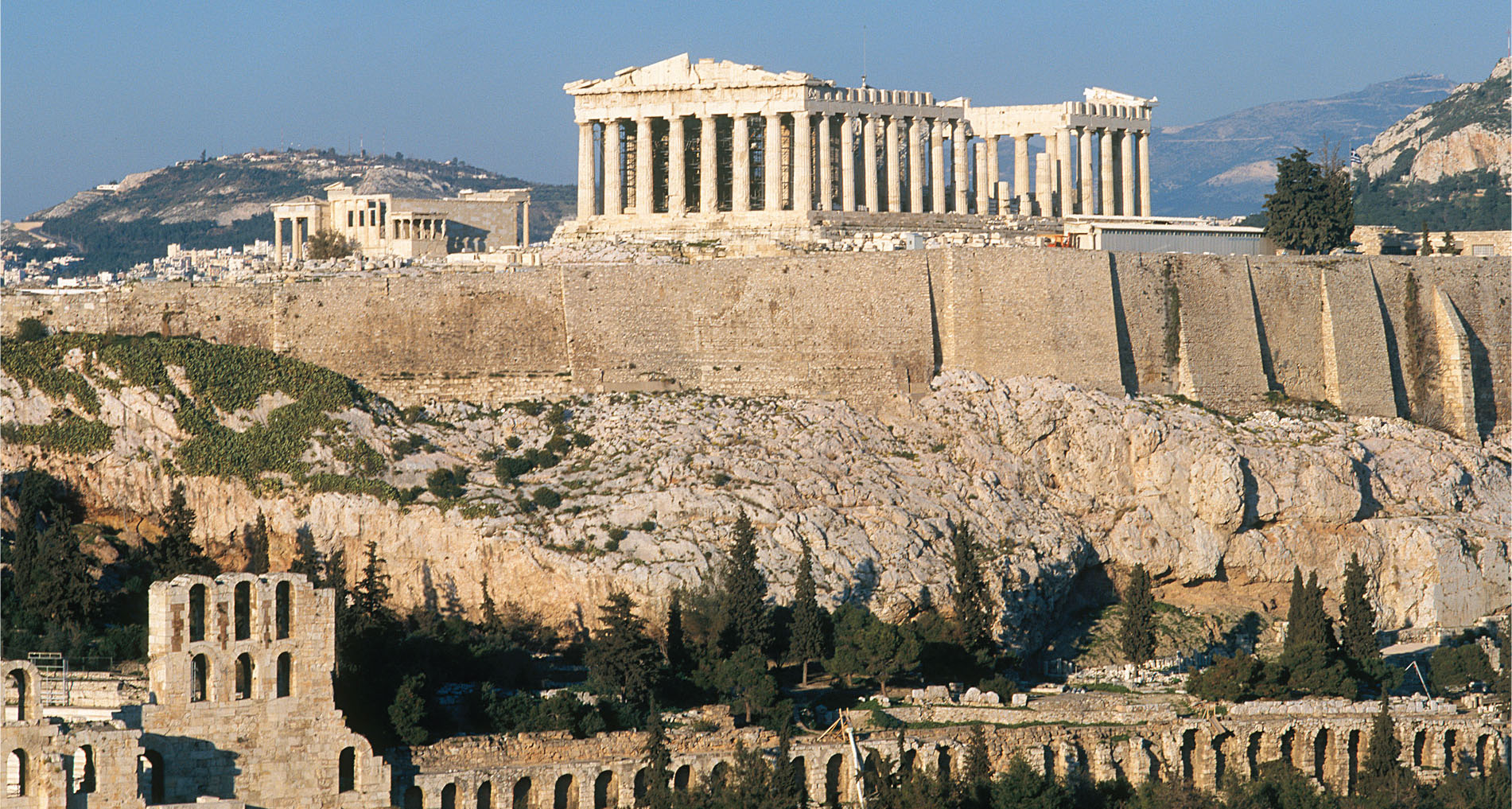A History of World Societies:
Printed Page 125
A History of World Societies Value
Edition: Printed Page 123
Athenian Arts in the Age of Pericles
In the midst of the warfare of the fifth century B.C.E., Pericles turned Athens into the showplace of Greece. He appropriated Delian League money to pay for a huge building program to rebuild the city that had been destroyed during the Persian occupation in 480 B.C.E. and to display to all Greeks the glory of the Athenian polis. Workers erected temples and other buildings as patriotic memorials housing statues and carvings, often painted in bright colors, showing the gods in human form and celebrating the Athenian victory over the Persians. (The paint later washed away, leaving the generally white sculpture that we think of as “classical.”) The Acropolis in the center of the city was crowned by the Parthenon, a temple that celebrated the greatness of Athens and its patron goddess, Athena, who was represented by a huge statue.

Other aspects of Athenian culture were also rooted in the life of the polis. The development of drama was tied to the religious festivals of the city, especially those to the god of wine, Dionysus. The polis sponsored plays as part of the city’s religious festivals and required wealthy citizens to pay the expenses of their production. Many plays were highly controversial, with overt political and social commentary, but they were neither suppressed nor censored. Not surprisingly, given the incessant warfare, conflict was a constant element in Athenian drama, and playwrights used their art in attempts to portray, understand, and resolve life’s basic conflicts.
Aeschylus (EHS-
The plays of Sophocles (SAH-
Good sense is by far the chief part of happiness; and we must not be impious towards the gods. The great words of boasters are always punished with great blows, and as they grow old teach them wisdom.4
In Oedipus the King, Sophocles tells the story of a good man doomed by the gods to kill his father and marry his mother. When Oedipus fails to avoid his fate, he blinds himself in despair and flees into exile. In Oedipus at Colonus, Sophocles treats the last days of the broken man, whose patient suffering and uncomplaining piety ultimately win the blessings and honor of the gods.
Euripides (yoo-
Aeschylus, Sophocles, and Euripides are considered writers of tragedies: the stories of flawed people who bring disaster on themselves because their passions overwhelm reason. Athens also produced writers of comedies, who used humor as political commentary in an effort to suggest and support the best policies for the polis. Although comedies treated the affairs of the polis bawdily and often coarsely, they too were performed at religious festivals. Best known of the comedians is Aristophanes (eh-